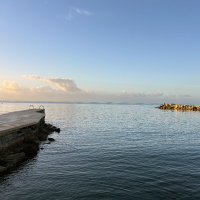
Recommended contact person
We are often approached by clients, whether high-net-worth individuals, family offices, or international entrepreneurs, who are considering relocating to Cyprus and ask how it compares to other prominent jurisdictions such as Dubai, the United Kingdom, Malta, and Greece. These discussions typically focus on tax efficiency, legal security, lifestyle, succession planning, and overall strategic value. In response to these frequent enquiries, we have prepared this article as a structured comparative analysis of the key features and advantages each jurisdiction offers, and to explain why, in our professional view, Cyprus consistently emerges as a superior choice for long-term wealth relocation and management.
As mentioned above, the five jurisdictions frequently considered for this purpose are Cyprus, Dubai (UAE), the United Kingdom, Malta, and, mostly lately, Greece. Each offers unique features. However, not all are equally positioned to serve as stable, comprehensive hubs for long-term wealth relocation.
In this article we evaluate and compare these five countries across six critical pillars:
- Taxation and fiscal transparency
- Legal system and asset protection
- Residency and citizenship options
- Succession and estate planning
- Lifestyle and infrastructure
- Global mobility and regulatory reputation
1. Taxation and Fiscal Transparency
Cyprus stands out with a strong, low-tax regime fully aligned with EU and OECD standards. It offers planning flexibility without reputational risk.
Key Advantages of Cyprus:
- 12.5% corporate income tax, among the lowest in the EU.
- Non-Domicile Regime: Exemption from tax on dividends, interest, and most capital gains for 17 years.
- No wealth tax, no inheritance tax, no taxation on foreign-source income (unless remitted by Cyprus tax residents).
- IP Box Regime with an effective tax rate of 2.5% for qualifying intellectual property income.
- Notional Interest Deduction (‘NID’): Tax benefit on new equity injections.
Comparison:
- Dubai: No personal income tax, but since 2023 introduced 9% corporate tax, and economic substance rules now apply. Not part of OECD/EU, creating limitations for cross-border planning.
- UK: High personal tax rates (up to 45%), CGT (up to 28%), and 40% inheritance tax. The non-dom regime was abolished in 2025, removing a major benefit for foreigners.
- Malta: Effective corporate tax may be reduced to 5% through a refund mechanism, but it’s complex. Remittance basis applies, but under scrutiny from the EU.
- Greece: A flat €100,000/year tax for non-doms sounds attractive, but implementation is inconsistent. High local taxes (income, CGT, property) reduce appeal.
2. Legal Framework & Asset Protection
A jurisdiction’s legal system is central to protecting wealth, enforcing rights, and supporting family structures.
Cyprus offers a common law system, based on English legal tradition, making it ideal for international families and businesses. It has a deep legal infrastructure supporting corporate, trust, and fiduciary arrangements.
Why Cyprus Leads:
- The Cyprus International Trust (‘CIT’) law allows for:
- Full asset protection from future claims (after a 2-year clawback period).
- No forced heirship.
- Settlor powers, confidentiality, and control.
- Court-tested enforceability, familiar to common law practitioners.
Click here for more information on CITs.
Comparison:
- Dubai: DIFC and ADGM free zones apply common law and permit trusts/foundations, but these are limited to those zones. Sharia principles may override in other cases.
- UK: Highly developed legal system, but trusts are now heavily taxed and regulated. Legal clarity remains strong, but privacy and planning freedom have diminished.
- Malta: Hybrid legal system allows for trusts but local expertise is shallower. Trusts must be registered and are monitored.
- Greece: Civil law system. No recognition of trusts. Asset protection through corporate structures is possible but inflexible.
3. Residency and Citizenship
Residency planning is essential for tax optimization and mobility. Cyprus offers simple and stable options.
Cyprus Residency Options:
- Permanent Residency (‘PR’) through investment: €300,000 in real estate or shares of a Cyprus company.
- Tax residency through either 183-day or 60-day rule (with minimal physical presence).
- Naturalization: Cyprus citizenship after 7 years of residency and integration.
- No need to reside full-time to maintain PR status.
Comparison:
- Dubai: Offers 10-year Golden Visas for investors and professionals. However, there is no access to citizenship. Residency depends on continued investment or employment.
- UK: Tier 1 Investor Visa was abolished. Complex naturalization with strict physical presence requirements. Tax liabilities are global after 4 years.
- Malta: PR via real estate and government contribution (from €370,000+ total). Citizenship program (MEIN) exists but under strong EU criticism (see EU Court judgment of 29.4.2025 declaring Malta’s investor citizenship scheme illegal – Commission v Malta, Case C-181/23).
- Greece: Golden Visa requires only €250,000 real estate investment, but grants only temporary residence, not citizenship, unless physically resident.
4. Succession and Estate Planning
Protecting and transferring wealth efficiently is a central reason for relocation.
Cyprus is one of the few EU jurisdictions that:
- Allows full testamentary freedom (no forced heirship).
- Enables efficient, confidential and enforceable succession via trusts or foundations.
- Imposes no estate or inheritance tax.
- Supports private trust companies and family office structures.
Comparison:
- Dubai: DIFC Wills Registry permits non-Muslims to sidestep Sharia inheritance law, but it requires careful structuring. Outside DIFC, Sharia inheritance rules apply.
- UK: Testamentary freedom exists, but inheritance tax is high (40%) and aggressively enforced. Trusts used to mitigate exposure now face HMRC scrutiny.
- Malta: Accepts foreign trusts, but forced heirship applies to local immovable property. Legal planning is more limited than in Cyprus.
- Greece: Forced heirship applies to all citizens. No trust framework. Succession planning must rely on corporate structuring or foreign legal systems.
5. Lifestyle & Infastructure
Quality of life can be just as important as legal and financial considerations.
Cyprus delivers a compelling lifestyle package:
- Mediterranean climate with 300+ days of sunshine.
- Safe, low-crime environment with strong private healthcare and international schooling.
- English is widely spoken. Road signs, education, and commerce accommodate foreigners.
- Access to nature, marinas, mountain retreats, and fast-growing cosmopolitan cities like Limassol, Nicosia, Larnaca, Pafos and Ammochostos.
- Cost of living lower than in Western Europe or Dubai.
Comparison:
- Dubai: Luxury infrastructure, top-tier services, and tax-free shopping. However, climate extremes, strict cultural controls, and transient communities can be challenges.
- UK: Offers cultural richness, elite education, and NHS. But high living costs, grey weather, and post-Brexit bureaucracy deter newcomers.
- Malta: Attractive historic charm and lifestyle, but overdevelopment, limited job opportunities, high cost of living, and infrastructure issues, and environmental pressure have escalated.
- Greece: Breathtaking natural beauty and a strong sense of tradition. However, bureaucracy, economic volatility, and inconsistent infrastructure affect planning reliability.
6. Global Mobility and Compliance
A critical but often overlooked factor is whether a jurisdiction helps or hinders international planning from a regulatory standpoint.
Cyprus offers:
- Full EU membership and access to the EU Single Market.
- Respectable double tax treaty network with over 65 countries.
- Fully compliant with FATF, OECD BEPS, and EU AML directives.
- Widely accepted legal and corporate structures by banks and regulators worldwide.
Comparison:
- Dubai: Not an EU or OECD member. Increasing pressure to implement substance rules and transparency has led to more compliance obligations.
- UK: Remains a financial powerhouse, but Brexit has removed EU access, and FATCA/CRS regimes are rigorously applied
- Malta: EU member, but reputation hit due to political scandals and golden passport controversy.
- Greece: EU access, but frequent law changes, enforcement delays, and tax unpredictability affect long-term planning.
Conclusion: Why Cyprus Stands Above the Rest
When viewed through a truly holistic lens, Cyprus delivers a rare symmetry of substance and strategy:
- Attractive and credible tax regime for corporates and individuals
- Flexible residency and non-dom advantages without residency burdens
- World-class trust and legal framework, offering asset protection and succession solutions
- EU membership, financial stability, and international legitimacy
- Safe, English-speaking environment, family-friendly and cost-efficient
- Banking and legal systems compatible with global expectations
- No blacklisting, no aggressive reputational risk, and no bureaucratic overreach
- Perfectly located, 4-hours flight from London and less than 4 hours from Dubai
While Dubai offers tax neutrality, it lacks permanence, EU access, and rule-of-law continuity. The UK burdens wealth with tax and regulation. Malta and Greece, though attractive culturally, fall short in legal robustness, asset protection, and planning efficiency.
Cyprus does not simply offer tax benefits, it offers long-term legal, financial, and personal security.
For those seeking a resilient base to build, protect, and pass on wealth, Cyprus is not just a destination. It is a jurisdictional advantage.
The information provided by AGPLAW | A.G. Paphitis & Co. LLC is for general informational purposes only and should not be construed as professional or formal legal advice. While every effort has been made to ensure the accuracy and reliability of the information contained herein, the author, publisher, or any related parties make no representations or warranties of any kind, express or implied, about the completeness, accuracy, reliability, suitability, or availability of the information. In no event will the author, publisher, or any related parties be liable for any loss or damage, including without limitation, indirect or consequential loss or damage, or any loss or damage whatsoever arising from loss of data or profits arising out of, or in connection with, the use of this document/article. You should not act or refrain from acting based on any information provided above without obtaining legal or other professional advice.
















